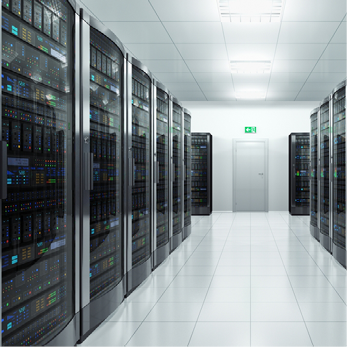In today’s fast-paced technological landscape, where data centers serve as the backbone of countless industries, maintaining operational efficiency is crucial. As businesses strive toward sustainability, one often overlooked yet essential factor is data center cleanliness. Dust and debris, no matter how small, can significantly impact equipment performance and overall energy consumption. In this blog, we dive into the importance of regular cleaning for data centers and provide actionable steps for keeping equipment in top shape.
Why is Cleanliness Critical in Data Centers?
Even particles as small as half a micron can cause damage to servers, storage units, and networking equipment. Maintaining clean data centers not only enhances operational performance but also promotes sustainable practices by reducing energy consumption and minimizing the risk of hardware failures.
Optimized Cooling Systems
Efficient cooling is a priority in every data center. According to the American Society of Heating, Refrigerating, and Air-Conditioning Engineers (ASHRAE), keeping server components clean optimizes cooling systems and prevents overheating. Dust buildup acts as insulation, increasing internal temperatures and forcing cooling systems to work harder. The Uptime Institute reports that dirty components can increase energy consumption by as much as 20%. Keeping data centers clean allows cooling systems to operate efficiently, driving down energy costs.
Reduction in Hardware Failures
Debris and dust can trigger hardware malfunctions. The Institute of Electrical and Electronics Engineers (IEEE) warns that contamination can cause overheating, electrical shorts, and mechanical failures. By adhering to regular cleaning protocols, you can reduce the risk of unexpected downtime and extend the lifespan of expensive equipment. In fact, preventive cleaning is a cost-effective method to ensure that your hardware remains reliable.
Best Practices for Data Center Maintenance
Maintaining a clean data center involves more than just wiping down surfaces. Here are key best practices to keep your data center in optimal condition:
1. Regular Cleaning Protocols
Implementing a consistent cleaning schedule is essential. The IEEE recommends cleaning at least once every six months to prevent dust accumulation. Routine cleaning ensures that cooling systems can continue to work effectively and supports long-term sustainability efforts.
2. Advanced Air Filtration Systems
Utilizing high-efficiency particulate air (HEPA) filters can significantly reduce airborne contaminants. According to the National Institute of Standards and Technology (NIST), HEPA filters can capture up to 99.97% of airborne particles. Installing advanced filtration systems is an effective preventive measure, but it is important to regularly maintain these systems to prevent contaminants from entering your data center.
3. Monitoring and Automation
Automating your cleaning and monitoring processes can further enhance efficiency. Real-time monitoring of temperature, pressure, and airflow provides data-driven insights into the cleanliness and performance of your equipment. Automated solutions not only streamline cleaning efforts but also align with modern data center management trends.
Conclusion: Cleanliness Drives Sustainability
As businesses across the globe focus on operational excellence and environmental responsibility, data center cleanliness emerges as a key player. Maintaining clean servers not only improves cooling efficiency and reduces hardware failures but also aligns with broader sustainability goals. Cleanliness is no longer just an operational need—it’s a strategic imperative for data centers aiming to stay competitive in an increasingly eco-conscious market.
By adopting these best practices, organizations can extend the life of their equipment, lower energy costs, and contribute to a greener future.
Author: Aaron DeMello
Email: [email protected]
